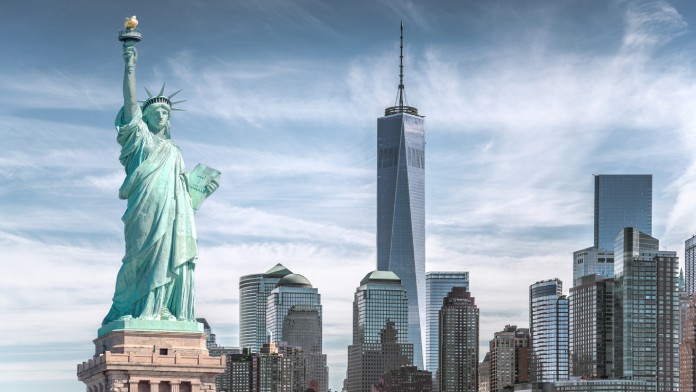Expert Insights
I recently read about a new community outreach program that opened in New York City’s East Harlem area. I assumed this was just your typical harm reduction outreach program…until I got to the part about the free laundromat, free showers, free acupuncture services, and a free massage center. I immediately wondered about the costs of running such a large “free” operation. I tend to remain neutral on efforts such as needle exchange programs and free crack pipe programs, but this particular program had one more (very significant) surprise offering: ambition to become the nation’s first publicly sanctioned supervised consumption room. (That’s a lengthy way of saying it’s a place where people can use drugs like heroin, meth, cocaine, and other substances while being observed by on-site medical staff members.)
If a person in the consumption room overdoses, medical professionals can step in to administer Narcan, reverse the overdose symptoms, and ultimately save a life. But make no mistake, these consumption room operations are illegal in the United States. I’ve seen data from similar operations around the world…and it’s never consistent. While I can get onboard with forms of harm reduction – especially programs making a tangible positive impact – I can’t shake the feeling that these facilities enable and prolong the disease of addiction while ignoring the possibility of achieving recovery as a whole.
~ Nikki Seay
Top Drug Rehabs Near New York City
Every alcohol and drug rehab in New York City offers its own set of unique amenities, programs, and therapies. Evidence-based treatment is available at multiple inpatient centers in New York City. These facilities often provide a range of therapies, faith-based treatments, and outpatient options for recovery.
Below are the best addiction treatment centers in New York City based on the following criteria:
- Offering evidence-based treatment
- Accreditation
- Certifications
- Client testimonials / reviews
Best Sober Living: Seafield Center
Since 1985, Seafield Center has helped people suffering from drug and alcohol addiction to begin the transforming journey to recovery. Their inpatient treatment center is located on six beautiful acres in Westhampton Beach, New York.
Treatment programs include:
- Medical detox services
- Medication-assisted treatment (MAT)
- Inpatient rehab
- Outpatient rehab
- Sober living and housing
Treatment programs are supported by:
- Joint Commission accreditation
Location and contact information:
7 Seafield Ln
Westhampton Beach, NY 11978
(800) 448-4808
Highest Rated Rehab: NYC Addiction Resources Manhattan
Located in New York, New York, NYC Addiction Resources Manhattan is one of the highest rated addiction treatment centers in the area. They provide a wide continuum of care for men and women undergoing alcohol and drug rehab programming. Their services are available to individuals from all walks of life.
NYC Addiction Resources Manhattan specializes in:
- Detox
- Inpatient
- Outpatient
- Intensive outpatient
- Medication Assisted Treatment
- Intervention Services
Treatment programs are supported by
- Substance Abuse and Mental Health Administration
- National Institute on Alcohol Abuse and Alcoholism
Location and contact information:
550 W. 54th St. Suite 1406
New York, New York 10019
(833) 394-7511
Best Holistic Treatment: Elev8 Center New York
Located in New York, New York, Elev8 Center New York provides alcohol and drug rehab services to men and women seeking recovery. Their holistic treatment programs are provided to help clients heal physically, mentally, and emotionally. Services are available to those who need a high level of care and supervision at the initial stages of treatment, with an average stay of 28 days. Treatment is for alcoholism and chemical drug addiction.
Elev8 Center New York specializes in:
- Medically Supervised Detox
- Inpatient
- Residential
Location and contact information:
151 West 136th St.
New York, New York 10030
(833) 353-8863
Best in Long Island: Long Island Interventions
Located in Westburg, New York, Long Island interventions provides addiction treatment services to men and women seeking recovery. As one of the best in Long Island, they offer a person-centered To alcohol and drug rehab programming.
Long Island interventions specializes in
- Detox
- Residential
- Partial Hospitalization
- Intensive Outpatient
- Sober Companions
- Recovery Coaches
- Faith-based Rehab
- 12 Step
Treatment programs are supported by:
- LegitScript
Location and contact information:
130 Post Avenue
Westburg, NY 11590
(631) 887-3234
Best Inpatient Treatment in Brooklyn: Genesis Detox of Brooklyn
Genesis Detox of Brooklyn, located in Brooklyn, is one of the best inpatient treatment programs in Brooklyn for individuals struggling with addiction. Their levels of care are designed to help those who need a high level of support, stabilization, and withdrawal symptom management. Same day and next day admissions are possible. Programs are available to individuals age 18 and over.
Genesis detox of Brooklyn specializes in
- Medically Supervised Detox
- Inpatient
- Medication assisted treatment
- Discharge
- 12 Steps
Treatment programs are supported by:
New York State Office of Alcoholism and Substance Abuse Services
Location and contact information:
449 39th St #3
Brooklyn, NY 11232
(718) 633-4673
Best Online & Virtual Rehab: Mountainside Treatment Center NYC Chelsea
Located in New York, New York, Mountainside Treatment Center NYC Chelsea offers alcohol and drug rehab services to men and women seeking recovery. They also offer treatment to adolescents through in person or telehealth options. Mountainside Treatment Center NYC Chelsea provides a wide variety of services that include mental health, addiction, and dual diagnosis treatment.
Mountainside Treatment Center NYC Chelsea specializes in:
- Detox
- Residential
- Extended Care
- Family Services
- Virtual Outpatient
- Outpatient
- Adolescent Services
- Medication Assisted Treatment
- Continuing Care
- Alumni Services
- Medical Services
- Psychiatric Services
- Wellness Services
Location and contact information:
243 W. 18th Street
New York, New York 10011
(646) 453-7474
Best Inpatient Rehab: Cornerstone Treatment Queens
At Cornerstone the emphasis is on the individual. Every aspect of treatment is directed toward preserving and enhancing the dignity and self-esteem. You will be assigned to a primary clinician who develops an individualized treatment plan and works with you to achieve and maintain recovery.
Treatment programs include:
- Medical detox services
- Inpatient program
- Individual and group therapy
- 12-step programs
- Aftercare plans
Treatment programs are supported by:
- Commission on Accreditation of Rehabilitation Facilities (CARF)
Location and contact information:
159-05 Union Tpke
Queens, NY 11366
(800) 233-9999
Best Luxury Rehab: Ascendant Detox NYC
If you are seeking a life free from substance abuse, Ascendant New York’s treatment programs promise a recovery experience beyond your expectations. They offer holistic healing therapy services, medically-supervised detox treatments, and both inpatient and outpatient programs.
Treatment programs include:
- Residential detox
- Alcohol and drug detox
- Inpatient treatment
- Outpatient rehab (IOP) program
- Holistic recovery
Location and contact information:
113 E 60th St
New York, NY 10022
(866) 219-7810
New York Drug and Alcohol Addiction Statistics
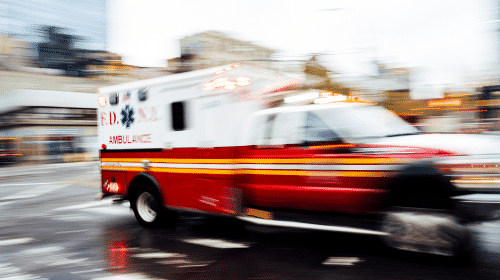
Every four hours in New York City, someone fatally overdoses due to an addiction.1
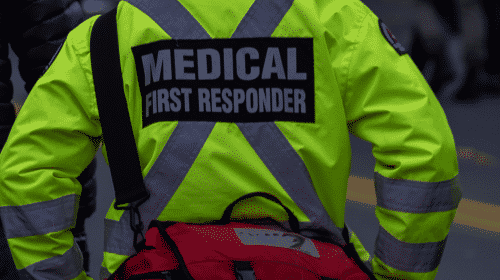
Overdose is the most common cause of accidental death in New York City.1
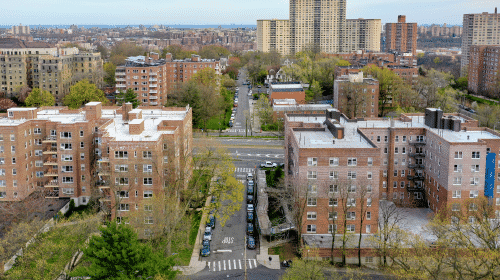
The Bronx and Harlem have been hit hardest by the wave of opioid overdoses.4
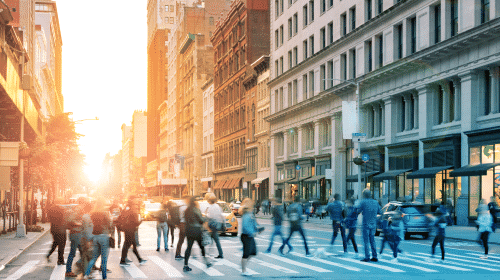
Nearly 5,000 people died in NYC as a result of substance use disorder during 2020.3
In 2019, about 7% of New Yorkers had a substance use disorder.2
Fentanyl and opioids contribute to 80% of all overdose deaths.1
Overdose deaths increased by an astounding 36% in 2020.5
How to Pay for Addiction Treatment in New York City
Regardless of your health insurance status, there are options for drug or alcohol rehab in New York City to help you seek addiction treatment. According to the Substance Abuse and Mental Health Services Administration (SAMHSA), in the state of New York, there are more than 700 drug or alcohol rehab programs, including:8
No matter how you intend to pay for treatment, you can reach out to specific facilities and detox centers in New York City to discuss finances. Have them go over the costs and payment schedule with you, and they’ll be able to help you figure out how to pay for your care.
How to Find Low-Cost and Free Drug Rehab Centers in NYC
If you’re open to seeking professional help outside the city, five drug and alcohol rehabs don’t take payment for services, offering crisis services pro bono for specific communities outside NYC.
You can also seek help from a state-funded treatment center. These facilities provide drug or alcohol addiction treatment at a reduced cost or free to eligible residents. Aside from state-funded facilities, you should consider the following when looking for options inside New York City:2
- Reach out to local churches to find emergency rehabilitation services or medical grant programs
- Find New York City drug rehabs that charge based on a sliding-fee scale
- Apply for an individual treatment scholarship through your chosen facility
- Contact one of the 11 New York City (or 109 facilities statewide) facilities that have received a SAMHSA block grant to provide addiction services to low-income individuals
- Look for addiction treatment centers that offer to set up payment plans
Understanding Levels of Care for Addiction Treatment
Medical Detox is essential to rid your body of the substance you’re addicted to before beginning a rehabilitation program aimed at recovery.
Inpatient rehab or residential care can generally last anywhere from one to three months, depending on the person. You will live at the facility and receive 24/7 care.
Partial hospitalization programs (PHPs) are the most intensive form of outpatient care, with several hours in an inpatient setting each day. Many people enter PHPs after finishing inpatient or detox programs.
Intensive outpatient programs (IOPs) are more involved than the standard treatment, requiring a few hours of therapy several days a week.
Standard outpatient treatment requires the least time commitment to participate, usually requiring only a few hours of meetings per week in individual therapy or support groups. This type of care is best for someone in long-term recovery who just needs ongoing counseling and life skills coaching to avoid relapsing.
Aftercare consists of community support groups that you can join, such as Alcoholics Anonymous (A.A.) or Narcotics Anonymous (N.A.) meetings, to supplement your outpatient care. These meetings are often provided at no cost (and have coffee).
Medication-Assisted Treatment (MAT) for Opioid and Alcohol Addiction
There are several FDA-approved medications to assist people in recovery from withdrawal symptoms. In addition, drug and alcohol rehab centers in New York City typically offer MAT and may be able to prescribe addiction medication such as:
Acamprosate: This medication reduces cravings for alcohol and post-acute (long-term) withdrawal symptoms such as anxiety and insomnia.
Disulfiram (Antabuse): Drinking alcohol while taking this medication causes unwanted symptoms that mimic a severe hangover. This helps reduce the craving to drink.
Naltrexone (Revia/Vivitrol): Used to treat both alcohol and opioid addiction, this opioid agonist binds to receptors in the brain and blocks the effects of alcohol and opiates.
Methadone: As a long-acting, full opioid agonist, this medication reduces opioid cravings and withdrawal while blunting or blocking the effects of opioids. Taken daily, it is available in liquid, powder, and wafer forms.
Buprenorphine (Buprenex/Butrans): A partial opioid agonist, this medication is used to treat opioid addiction. It reduces cravings and withdrawal symptoms without producing the same euphoric high associated with full opioid agonists like heroin or methadone.
Buprenorphine/Naloxone (Suboxone, Zubsolv): This medication is used for the induction and maintenance treatment of opioid dependence or addiction. Buprenorphine reduces withdrawal symptoms and cravings, while naloxone deters misuse and can reverse opioid overdose.
Mental Health Medications: If you have a dual diagnosis, meaning you are diagnosed with substance use disorder, and a co-occurring mental or behavioral condition, medications such as antidepressants, anti-anxiety medications, and mood stabilizers may be prescribed.
In the case of dual diagnosis disorders, your medication management clinician may prescribe you medications to help treat anxiety, depression, and any mental health disorders you may also be living with.
Should You Choose Specialized Drug Rehabs in New York City?
Recovery is a multi-dimensional endeavor and looks different for every individual. There are a variety of drug rehab centers in New York City that are focused on a specific demographic to help the people in care achieve recovery in a group of their peers. Some New York City addiction treatment programs specialize in treating specific demographics, such as teenagers, LGBTQ+ individuals, veterans, and more.
Faith-Based
Faith-based treatment centers offer a layer of spirituality to your recovery, incorporating prayer and faith-led exercises. Sometimes it can be helpful to attend a faith-based program if you have a particularly strong religious background. These often incorporate religious texts and beliefs into their plans.
LGBTQ+
If you’re a member of the LGBTQ+ community and seeking treatment in New York City, look for a program that is inclusive and understands the personal, mental, and social difficulties unique to your community.
Women-Only
Many women elect to participate in a women-only program. Regardless of your reason for choosing a women-only drug rehab in New York, there are programs available that provide a safe space to recover from addiction and build a community of lifelong friends in the process.
Men-Only
Men can face emotional challenges when dealing with addiction due to the stigma against men feeling weak or vulnerable. Men can participate in addiction therapy with a group of their peers where they can lean on each other for friendship and support while recovering.
Teen
Teenagers face the challenge of being under stricter family dynamics than others in recovery, as well as differences in their social and educational environment. Teen-only rehab is a safe space for younger people to recover with people whom they can relate to and open up to.
Young Adult
Programs specifically for individuals between the ages of 18 and 30 help facilitate their early careers and education. People at this age may struggle with self-control, such as by behaving dangerously and/or using risky drugs and being open to more risk factors than other groups.
Luxury
When you want your recovery to be more like a vacation, choose a resort-style luxury rehab. These treatment centers typically offer deluxe amenities like fitness centers, equine therapy, massage therapy in a private spa, fine dining on-site, and more.
Executive
Whether in the legal or medical profession or the educational sphere, you want to ensure that your career and reputation remain intact while treating your addiction. Executive programs tend to offer upscale features like luxury rehab combined with business-related amenities like high-speed internet and private workrooms.
Dual Diagnosis
People who have an existing mental health disorder are more prone to addiction than those without. Dual diagnosis programs are available in New York City that helps manage the symptoms of both disorders with medication and therapy.
How to Choose an Alcohol or Drug Rehab in New York City
Every person will have different requirements for addiction treatment. There are many things to consider when choosing the right program for you or a loved one, including:
Treatment setting: Do you want to live in the heart of the metro, or do you need a quieter atmosphere to recover in? Make sure to look into the location you want to primarily spend your time.
Inpatient or outpatient: You’ll need to determine how intensive your treatment can or should be to best fit your needs and schedule.
Cost: You’ll need to know whether insurance will pay for care and what your out-of-pocket costs will be, and budget accordingly.
Features and amenities: If you have a specific lifestyle in mind, such as frequent sober outings or spending time in the gym, make sure your program has the amenities you’re looking for.
Treatment philosophy: Your background and preferences will dictate the type of program that’s right for you. In addition to the types of therapy offered, look into your chosen program’s mission statement, schedule, and overall vibe to make sure it’s a good fit.
Visitor Policy: If you intend to have friends or family come by to support you or participate in group or family therapy sessions, make sure to read the visitor policy. Some places are more strict than others in regards to when and how often residents can have company.
Peer support: Take a look at the type of support groups and meetings offered in your chosen program to make sure it’s a schedule that you would enjoy participating in.
Should You Travel to New York City for Rehab?
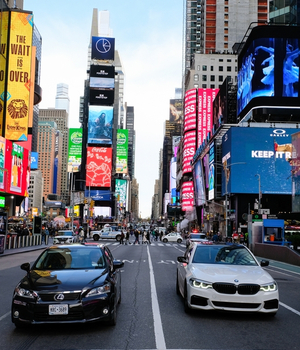 It may be more beneficial to your recovery to seek addiction services away from home. If you love the fast-paced environment or opportunities, consider attending rehab facilities or detox centers in New York City.
It may be more beneficial to your recovery to seek addiction services away from home. If you love the fast-paced environment or opportunities, consider attending rehab facilities or detox centers in New York City.
You might want to pursue addiction treatment in The Big Apple if:
- You have friends or family that live nearby who can support you
- Your area doesn’t have sufficient programming or funding to help you
- You want a change of pace and scenery
- Your insurance covers addiction treatment in New York City
- You appreciate the art and theater scene the city has to offer
Drug and Alcohol Laws in New York City
Given the rising number of overdoses and addiction cases overall, NYC has created laws and public programs to combat the number of drug-related deaths. In addition to harm-reduction laws such as the NY 911 law, the city of New York has programs in place to help those addicted to drugs minimize their risks.
For example, restaurants across the city now carry overdose prevention kits with naloxone syringes and fentanyl detector strips in them, and the city opened the nation’s first supervised injection sites in December 2021.10, 11 New Yorkers can also request overdose prevention kits through community partners or by stopping into a pharmacy where kits are free.12
New York State 911 Good Samaritan Law: Enacted to boost harm reduction efforts in the state, the New York 911 law states that if you are present when a person overdoses on illicit drugs, you can call 911 without fear of prosecution if you have illicit substances, taking illegal drugs with the overdosing person, or some other illegal circumstance.13 This is to prevent people from abandoning their friends who have overdosed for fear of facing charges over drug use. The law may even protect you if you sold the illegal drug to the overdose victim, depending on your prior convictions. The law does not protect you against being arrested if you have a warrant, have violated parole, or have over 8 ounces of a controlled substance.
Alternatives To Incarceration (ATI) Programs: To further the fight against addiction, New York has implemented 165 ATI programs.14 These programs take people recently convicted of a drug-related offense and offer them the option of drug and alcohol treatment instead of going to jail.
New York Public Health Law Section 3309: In the State of New York, first responders are trained in the administration of and carry Narcan (naloxone) with them on duty. According to NYS law, emergency workers can’t be prosecuted for using Narcan if they are aiding an overdose victim.
I-STOP Act of 2011: The I-STOP Act was designed to prevent doctor shopping, where a person goes to a second doctor for a prescription because they’ve run out of painkillers early, and doctor hopping, which is doctor shopping in another locality to avoid being caught, as the act is illegal. It was instituted in August 2013, creating a prescription drug registry to help doctors avoid over-prescribing pain medication.
New York Employee Protections for Addiction Treatment: Under the federally mandated Family Medical Leave Act (FMLA), employees can claim up to twelve weeks of unpaid leave without fear of losing their position. Employers may not discriminate against an employee based on a medical condition such as addiction to drugs or alcohol or mental health disorders, so employees are protected from prejudice in this way when seeking treatment.
No matter your addiction or the severity, you can find alcohol and drug rehab centers in New York City that fit your needs. Call
800-681-1058
(Who Answers?)
to get the help you need, today.
Resources
- New York City Releases 2021 Overdose Data Showing Unprecedented Overdose Levels – NYC Health. (n.d.). Www.nyc.gov.
- FindTreatment.gov. (n.d.). FindTreatment.gov.
- New York City Department of Health. (2021). Unintentional Drug Poisoning Overdose Deaths Fourth Quarter.
- Substance Abuse and Mental Health Services Administration Interactive National Survey on Drug Use and Health State Estimates. (2019). Pain Reliever Misuse in the Past Year among Individuals Aged 12 or Older, by State: 2018-2019.
- New York Department of Health. (2022). Quarterly Opioid Report Press Release.
- New York City Department of Health. (2021). Unintentional Drug Poisoning Overdose Deaths Fourth Quarter.
- Center for Disease Control and Prevention, National Center for Health Statistics. (2021). Drug Overdose Deaths in the U.S. Up 30% in 2020.
- New York State Department of Health. (2019). Data highlights. New York State Annual Opioid Report.
- New York State Office of Addiction Services and Supports. (2022). Laws and Regulations.
- Substance Abuse and Mental Health Services Administration. (2022). Interactive Facility Location Map.
- Substance Abuse and Mental Health Services Administration. (2022). Co-occurring Disorders and Other Health Conditions.
- New York City Department of Health. (2019). Health Department Teams Up with Brooklyn Bar and Nightclub Owners to Prevent Overdose Press Release.
- New York City Department of Health. (2021). Overdose Prevention Centers Averted 59 Overdoses in First Three Weeks of Operation Press Release.
- New York City Department of Health. (2021). Naloxone Information.
- New York State Department of Health. (2022). New York State’s 911 Good Samaritan Law Protects YOU.
- New York State Department of Criminal Justice Services. (2022). Alternative to Incarceration (ATI) Programs.

